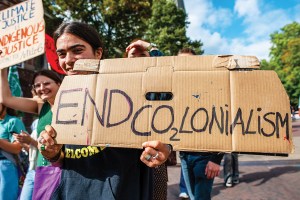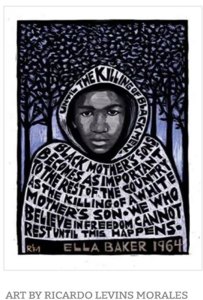The campaign to destroy Assange’s reputation has been vicious and deliberate, and the damage may never be undone. Thus far, it has served its purpose. It has kept the public from rising emphatically in the defense of the most important journalist of the 21st century.
By Mike Madden Women Against Military Madness Newsletter
Vol. 40 No. 1 Winter 2022
“Free Julian Assange!” Call-In Day
Today, February 22, 2022, is call-in day for Assange.
The White House comment line is 1-202-456-1111.
If you prefer to write, the White House contact form can be found here.
The White House comment line has limited hours. On Tuesdays, you can only leave a message from 10am to 2pm Central Standard Time. Please remember respectful communication is most effective.
Julian Assange, an Australian citizen and the founder of WikiLeaks, a transparency organization that publishes primary source documents obtained from whistleblowers who wish to remain anonymous, has been the target of a vicious smear campaign. This is because in the public interest, Wikileaks revealed secrets which were held by governments around the world.
Journalism without fear or favor does not win friends in the halls of power. In publishing the Iraq War logs, Afghanistan War diaries, GITMO files, and Collateral Murder video, WikiLeaks produced prima facie evidence of U.S. war crimes, torture, and indiscriminate killing of civilians. Rather than address its own unlawful actions, the United States set out to destroy the messenger.
Julian Assange was a highly regarded figure in the aftermath of WikiLeaks’ initial releases, and we now know that a grand jury was quickly empaneled for his indictment. Because the charges – 17 counts under the 1917 U.S. Espionage Act (and one count of conspiracy to commit computer intrusion) – describe actions that are common journalistic practices, the prosecution of Assange had to be accompanied by his persecution. If public opinion could be turned against the person of Assange, attention could be turned away from the threat his prosecution poses to the First Amendment protections of press freedom.
Assange has now been arbitrarily detained for more than ten years. For the past three years, that detention has been in the solitary and harsh conditions of Belmarsh Prison, a high-security facility located in southeast London, where he is denied adequate medical care. His physical and mental health have deteriorated to the point that he can no longer properly participate in his own defense. He suffered a stroke during an extradition hearing last October. A group of 60 doctors, writing in the journal Lancet, have warned he may die prematurely if he does not get proper medical treatment.[i] He is just 50 years old.
Perhaps the cruelest aspect of his takedown has been the campaign of character assassination contrived to cast Assange as an unclean person of suspect moral character. He has been called a narcissist, a traitor, a rapist, a terrorist, a Russian stooge, a Trump supporter, and an abuser of his pet cat. This villainous campaign has been perpetrated by the governments responsible for his detention and their media allies. If they succeed in whipping up public opinion that is hostile to his fate, his prosecution for political offenses will proceed unimpeded, regardless of the free-press issues at stake. Even if he is never prosecuted, a message of ruination is being sent to those who might consider crossing the line of what the United States deems permissible reporting.
Evidence of this underhanded campaign emerged shortly after the Collateral Murder video was released on April 5, 2010.[ii] Stratfor is a global intelligence firm under contract with U.S. intelligence and national security agencies. It was hacked in 2011 and millions of its internal documents were delivered to WikiLeaks, which made them public.[iii] Its plans to destroy Assange included:
- “bankrupt the [expletive deleted]…ruin his life”
- “move him from country to country to face various charges for the next 25 years”
- “the owner [Assange] is a peacenik. He needs his head dunked in a full toilet bowl at Gitmo”
- “Assange is going to make a nice bride in prison. Screw the terrorist. He’ll be eating cat food forever.”
A door opened to smear Assange’s reputation and potentially turn him over to the United States when, on August 20, 2010, two women who had had intimate relations with Assange approached Swedish police together, seeking to have him tested for HIV.
Only one of the women gave a statement that day, but she was not seeking to file a criminal complaint. When informed that her statement would be used to arrest Assange for suspected rape, she broke off the interview, refused to sign the statement, and left the station. She wrote to a friend that “it was the police who made up the charges,” and they were “keen to get their hands on him.”
Hours later on the same day, Swedish authorities ordered the arrest of Assange, and informed the tabloid newspaper Expressen that he was suspected of raping two women. This occurred before the second woman had given a statement, and before Assange had been given an opportunity to respond.
This disregard for anonymity, discretion, and confidentiality in preliminary investigations is inexcusable. It harmed the women, who became the subject of sordid rumors, and the accused, who is entitled the presumption of innocence until proven guilty.
After reviewing available evidence, including a statement from the second woman, the chief prosecutor of Stockholm, Eva Finne, closed the investigation into Assange on August 25th. She stated, “I do not think there is a reason to suspect that he has committed rape,” and added that “the conduct alleged by [the initial complainant] disclosed no crime at all.”
The next day, August 26th, the officer who conducted the initial interview was instructed by her superior officer to modify the statement without the consent of the woman who gave it. The modified statement became the basis for a different prosecutor to reopen the rape investigation of Assange.
On August 30th, Assange was formally questioned by Swedish police. He remained available for further questioning until he left Sweden on September 27th. He informed the authorities of his departure plans and was granted express permission to leave.
In November, with no criminal charges yet filed, the new prosecutor issued a European arrest warrant and Interpol “red notice” for Assange to be further questioned. Since Assange, now in London, was still willing to be questioned if the Swedish authorities came to him, or in Sweden if they would grant assurances that he wouldn’t be extradited to the United States (the principle of non-refoulement), these actions appear to have served no purpose other than to elevate the rape narrative.
In June of 2012, with extradition to Sweden appearing imminent, and fearful of onward extradition to the United States, Assange sought and received asylum in the Ecuadorian Embassy in London. Even there, he remained open to questioning, but Swedish prosecutors refused to do so until November 2016. Six months later, in May of 2017, Sweden dropped the investigation without ever filing a charge against Assange. The case never advanced beyond the stage of preliminary investigation.
These occurrences are detailed in a letter from United Nations Special Rapporteur on Torture, Nils Melzer, to the Swedish government dated September 19, 2019.[iv] In addition to the inflated allegations of sexual misconduct and procedural procrastination, he found political conflicts of interest among the Swedish authorities investigating the matter, including the attorney appointed by the State to represent the women. He also found ample evidence of U.S. and UK interference in what was ostensibly a Swedish affair. He wrote:
The medical, factual and circumstantial evidence at my disposal shows that the manner in which Sweden conducted its preliminary investigation against Mr. Assange, including the unrestrained and unqualified dissemination and perpetuation of the ‘rape suspect’ narrative, was the primary factor that triggered, enabled and encouraged the subsequent campaign of sustained and concerted public mobbing and judicial persecution against Mr. Assange in various countries, the cumulative effects of which can only [be] described as psychological torture.”
Women Against Rape (WAR) is a grassroots, multi-racial women’s group founded in London in 1976 to advocate for women and girls who have suffered sexual, domestic, and/or racist violence.[v] In a 2012 editorial[vi] its founders Katrin Axelsson and Lisa Longstaff wrote:
Whether or not Assange is guilty of sexual violence, we do not believe that is why he is being pursued. Once again women’s fury and frustration at the prevalence of rape and other violence is being used by politicians to advance their own purposes. The authorities care so little about violence against women that they manipulate rape allegations at will, usually to increase their own powers, this time to facilitate Assange’s extradition or even rendition to the U.S.”
The campaign to destroy Assange’s reputation has been vicious and deliberate, and the damage may never be undone. Thus far, it has served its purpose. It has kept the public from rising emphatically in the defense of the most important journalist of the 21st century.
It is no longer the character of Julian Assange that should be in question, it is the character and ethics of those in his pursuit.
Mike Madden is a member of Veterans For Peace, Women Against Military Madness, and the WAMM Tackling Torture at the Top (T3 Committee.
ACTION: Contact the U.S. Justice Department and demand that it halt the extradition, drop all charges, and guarantee safe passage for Julian Assange. He has committed no crime. He has performed a public service. Phone: 1-202-353-1555 or go to tinyurl.com/yzpkz7rj
RESOURCE:
Assange Defense assangedefense.org
Includes list of individuals and organizations supporting Julian Assange, along with their statements. Also: news updates on the legal proceedings, videos, and events related to his defense. The Twin Cities Assange Defense chapter will launch in February.
[i] Stephen Frost et al., “End Torture and Medical Neglect of Julian Assange,” The Lancet 395, no. 10226 (March 2020): e44–45, tinyurl.com55u952ys
[ii] Anon. Collateral Murder. Wikileaks.org April 5, 2010. tinyurl.com/2p8v6sjs. Anon. “Collateral Murder.” Wikileaks.org April 5, 2010. tinyurl.com/2p8v6sjs.
[iii] “Wikileaks - the Gifiles,” wikileaks.org/the-gifiles.html (Wikileaks, February 12, 2012), wikileaks.org/the-gifiles.html.
[iv] Nilsl Melzer, Mandate of the Special Rapporteur on Torture and Other Cruel, Inhuman or Degrading Treatment or Punishment (September 12, 2019). tinyurl.com/32kjfeb5
[v] Women Against Rape, n.d., tinyurl.com/4xu6yvp7.
[vi] Katrin Axelsson and Lisa Longstaff. “We Are Women Against Rape But We Do Not Want Julian Assange Extradited.” August 23, 2012. The Guardian. Tinyurk.com/396ykn68


